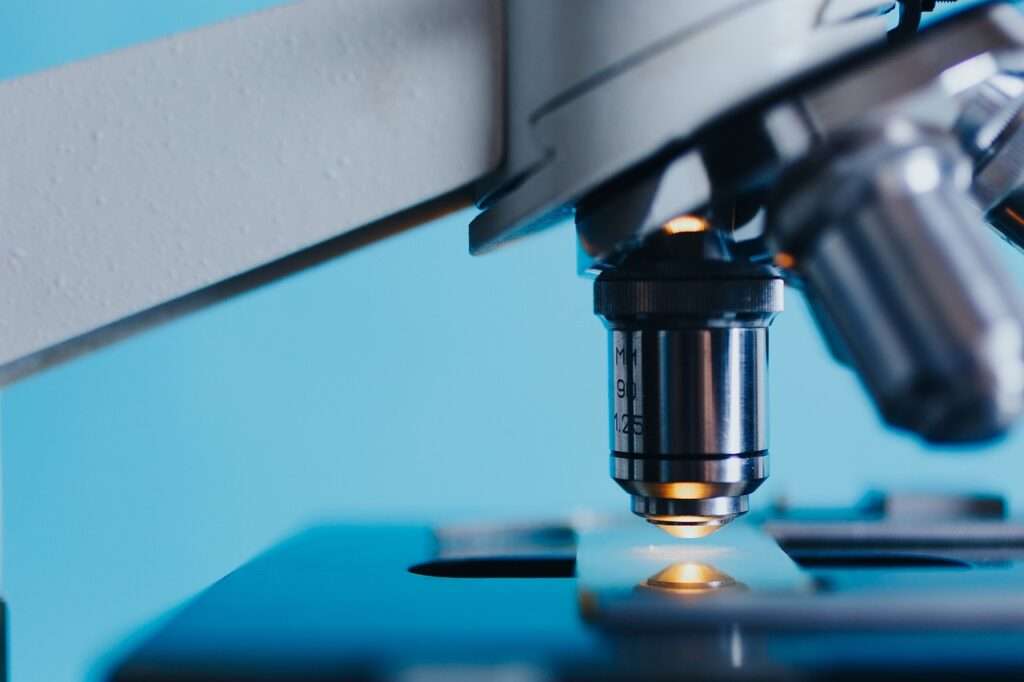Math, Zoology, Physics, Chemistry, Botany, Statistics, Psychology, Nutrition, Forestry, Computer Science, Home Science, Microbiology, Genetics, Agriculture, and other disciplines are included in the BSc Syllabus. With an emphasis on experimentation and research, a BSc degree combines theories and practices. While BTech is more practical in nature, BSc courses assist students in gaining a comprehensive and academic understanding of a subject.
BSc Subjects List

BSc. stands for Bachelor of Science, and it is an undergraduate academic degree typically awarded after completing a three-year course of study in science-related fields.
- BSc Physics
- BSc Chemistry
- BSc Computer Science
- BSc Mathematics
- BSc Zoology
- BSc Botany
- BSc Biotechnology
- BSc Microbiology
- BSc IT
- BSc Statistics
- BSc Electronics
- BSc Geography
BSc Syllabus
The student’s chosen specialization will affect the BSc Subjects. The list of BSc subjects includes courses in biology, chemistry, computer science, mathematics, zoology, botany, microbiology, information technology, and more. For honors streams, there is a distinct BSc syllabus.

BSc Computer Science Subjects
The three-year BSc Computer Science program covers artificial intelligence, programming languages, database systems, networking, and computer science theory. Students will be able to find employment in a variety of fields, including electrical engineering and software engineering. The BSc Computer Science semester-by-semester course schedule is as follows:
| Semester I | Semester II |
|---|---|
| Introduction to Digital Electronics | Front Office Management |
| Basics of Computer Science | Discrete Mathematics |
| Environmental Sciences | Computer Organization |
| Foundation course in Mathematics | Fundamental of Open Source Software-LINUX |
| Semester III | Semester IV |
|---|---|
| Object-Oriented Programming using C++ | Database Management Systems |
| Functional English-I | Value and Ethics |
| Technical Writing | System Analysis and design |
| Analytical Skill Development-I | Analytical Skill Development-II |
| Semester V | Semester VI |
|---|---|
| Introduction to Data Structures | Numerical Analysis |
| Operating Systems concepts | Introduction to Computer Network |
| System Software | System Programming |
| Python programming | Introduction to Web Technology |
| Introduction to Software Engineering | Project Work |
BSc Biotechnology Subjects

A three-year undergraduate program called BSc Biotechnology focuses on the study of biological processes including the genetic modification of microbes to create antibiotics, hormones, etc. After earning a BSc in biotechnology, students can pursue careers in fields such as pharmacy, biology, medicine, etc. The BSc Biotechnology semester-by-semester course list is provided below.
| Semester I | |
|---|---|
| Theory | Practical |
| Mathematics I | Personality Development I |
| Chemistry | Computer Literacy |
| Physics | Chemistry Lab |
| Basic Engineering | Physics Lab |
| English | NCC / NSS / NSO & YOGA |
| – | Workshop practice / Engineering Graphics |
| Semester II | |
|---|---|
| Theory | Practical |
| Value Education | Personality Development II |
| Mathematics II | Engineering Graphics / Workshop Practice |
| Basic Engineering II | Computer Practice |
| Electronic Devices | Devices Lab |
| Biology for Engineers | – |
| Principles of Environmental Science | – |
| Materials Science | – |
| Semester III | |
|---|---|
| Theory | Practical |
| Mathematics III | Personality Development III |
| Digital Systems | Digital Systems Lab |
| Circuits & Networks | Electric and Electronic Circuits Lab |
| German or Japanese or French Language Phase I | – |
| Basic Biochemistry | – |
| Engineering Mechanics and Fluid Mechanics | – |
| Electronic Circuits | – |
| Semester IV | |
|---|---|
| Theory | Practical |
| Linear Integrated Circuits | Personality Development IV |
| Signals and Systems | Sensors and Measurements Lab |
| Bio Analytical Techniques | Linear Integrated Circuits Lab |
| Probability and Random Process | – |
| German or Japanese or French Language Phase II | – |
| Sensors and Measuring Techniques | – |
| Basic Human Anatomy and Physiology | – |
| Semester V | |
|---|---|
| Theory | Practical |
| Engineering Economics and Management | Personality Development V |
| Principles of Communication Engineering | Biomedical Instrumentation Lab |
| Control Systems | Microprocessor and Microcontroller Lab |
| Biomedical Instrumentation | Computer skills |
| Microprocessors and Microcontrollers | Industrial Training I |
| Introduction to Medical Physics | Comprehension I |
| Semester VI | |
|---|---|
| Bio-Signal Processing | Medical Imaging Techniques |
| Biomaterials and Artificial Organs | Basic Pathology and Basic Microbiology |
| Diagnostic Ultrasound in Medicine | Bio- Signal Processing Lab |
| Personality Development VI | Pathology and Microbiology Lab |
| Comprehension II | Computer skills |
| Elective I | – |
| Semester VII | |
|---|---|
| Theory | Practical |
| Virtual Instrumentation | Medical Image Processing Lab |
| Diagnostic and Therapeutic Equipment | Industrial Training II |
| Medical Image Processing | Virtual Instrumentation Lab |
| Elective I | – |
| Elective II | – |
| Semester VIII | |
|---|---|
| Elective IV | Elective V |
| Project Work | – |
BSc Maths Syllabus
The three-year undergraduate BSc Mathematics curriculum emphasizes the development of mathematical abilities and knowledge in areas such as data analysis, trigonometry, calculus, algebra, and more. Following their MSc in Mathematics, students find employment in fields such as finance and computer applications. The BSc Maths semester-by-semester subjects are shown below.
| Semester 1 | Semester 2 |
|---|---|
| Analytical Solid Geometry | Calculus |
| Differential Equations | Probability |
| – | Statistics |
| Semester 3 | Semester 4 |
|---|---|
| Real Analysis c | Linear Algebra |
| Abstract Algebra | Mechanics |
| Semester 5 | Semester 6 |
|---|---|
| Discrete Mathematics Linear Programming & Its Applications | Complex Analysis Numerical Analysis |
BSc Entrance Exam Syllabus
The majority of BSc admissions occur through entrance tests, while several other universities also grant admission based on class 12 grade point average. Some BSc specializations, such as BSc Nursing, only accept applicants based on entrance exams.
BSc Nursing Entrance Exam Syllabus
| Subject | Sections and Questions |
|---|---|
| Zoology: Section A – 35, Section B – 15 | Zoology: Section A – 35, Section B – 15 |
| Botany: Section A – 35, Section B – 15 | |
| NEET Physics Exam Pattern | Physics: Section A – 35, Section B – 15 |
| NEET Chemistry Exam Pattern | Chemistry: Section A – 35, Section B – 15 |
| Internal Choice in Paper | Attempt any 10 questions out of 15 in section B |
BHU BSc Entrance Exam Syllabus

| Group | Entrance Subjects | Marks | Total |
|---|---|---|---|
| Biology Group | Biology | 50 | 150 |
| Physics | 50 | ||
| Chemistry | 50 | ||
| Mathematics Group | Mathematics | 50 | 150 |
| Physics | 50 | ||
| Chemistry | 50 |
BSc Agriculture Entrance Exam Syllabus
| Exam Pattern | Details |
|---|---|
| Total questions | 200 |
| Total marks | 300 |
| Duration | 120 minutes |
| Types of questions | MCQs |
| Topics to be covered in the exam | Mental Ability (25 questions), Chemistry (25 questions), Physics & Mathematics (50 questions), Botany & Zoology (50 questions), Agriculture (50 questions) |






